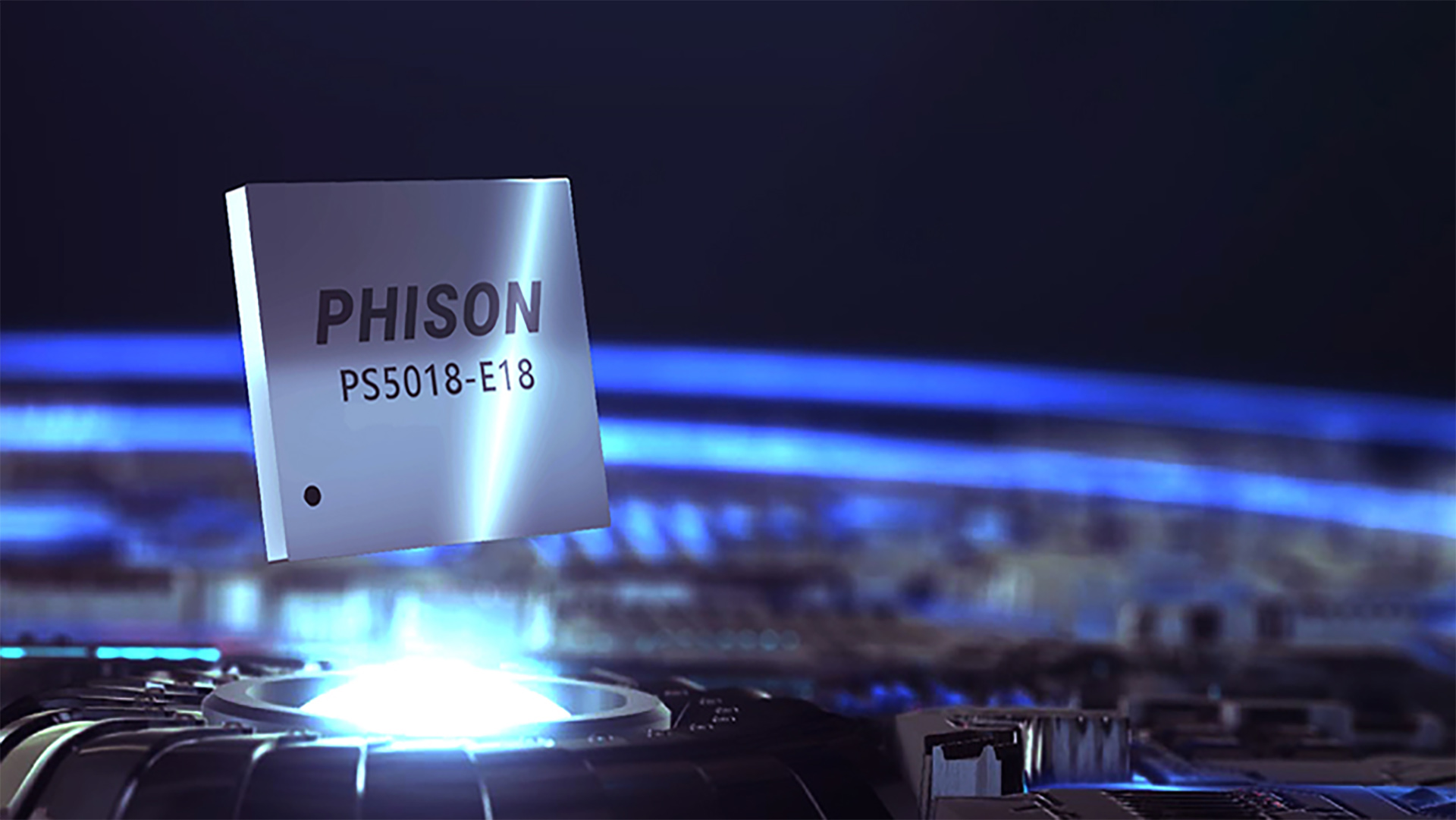Phison's new SSD controller means we're already close to the limits of PCIe 4.0 speed
The controller to pair with an AMD Ryzen 5000 CPU.

Phison has announced a brand new PCIe 4.0 SSD controller that's capable of extreme read and write speeds upwards of 7GB/s. That's very nearly at the upper limit of what PCIe 4.0 can offer not long after the standard was introduced into the mainstream market with AMD Ryzen.
The new PS5018-E18 controller, or E18 for short, is capable of up to 7.4GB/s read performance, and 7GB/s write. It's an eight-channel controller, capable of working with up to 8TB worth of NAND flash, and you'll want a drive capable of maximising every channel for peak performance. The controller itself is built on the TSMC 12nm process.
Phison was the first out of the gate with a compatible controller for AMD's Ryzen 3000 CPUs, the first processor and motherboard combination with PCIe 4.0 platform support, back in July, 2019.
The E16 controller launched way back then was capable of 5GB/s read and 4.4GB/s write, which seems a little tame by today's standards, but is still way quicker than even the fastest PCIe 3.0 drives. Even so, the company has been teasing an even more capable PCIe 4.0 controller in the E18 ever since.
Nowadays Phison has a little more competition in Samsung's 980 Pro, the WD Black SN850, and three new PCIe 4.0 controllers from Silicon Motion.
All of which arrive just in time for not one but two PCIe 4.0 compatible CPU releases. AMD's Ryzen 5000-series chips launched just last week, and will be rolling out throughout the end of the year, and Intel has already confirmed that it will support the greater bandwidth of the PCIe 4.0 standard with its upcoming Rocket Lake processors. Those are expected sometime in the first three months of 2021.
You can read up our thoughts on the AMD Ryzen 9 5900X, and the Zen 3 architecture as a whole, in Alan's review.
The biggest gaming news, reviews and hardware deals
Keep up to date with the most important stories and the best deals, as picked by the PC Gamer team.
So what's the benefit of such a speedy drive for gaming? Well, uh, that's where things get a little tricky, because there isn't a great deal of improvement for the average PC gamer in making the switch from PCIe 3.0 to PCIe 4.0.

Best CPU for gaming: the top chips from Intel and AMD
Best graphics card: your perfect pixel-pusher awaits
Best SSD for gaming: get into the game ahead of the rest
At least not yet, anyways. The difference between a fast SSD and the fastest SSD in-game is measured in seconds, or even fractions of a second, as GPU memory buffers play such a pivotal role in actually keeping your graphics card fed with the data it requires. Yet developers are already eyeing up the benefits of solid-state storage, specifically fast PCIe 4.0 stuff, with the introduction of such drives on PC, and with the recent arrival of the Xbox Series X and PlayStation 5.
The goal is to eliminate CPU bottlenecks, with the help of technology such as DirectStorage. This allows developers to better utilise the GPU and storage, all the while avoiding putting too great a demand on the CPU. The end goal: more expansive, detailed game worlds. Pretty admirable, if you ask me.
So perhaps there will be a good reason to have a super-snappy PCIe 4.0 drive sometime in the future, although my guess is that any of the best NVMe SSDs will be up to the task for quite some time.
Beside gaming, a PCIe 4.0 drive is great if you're someone who moves massive files around your PC a lot, or just need a rapid scratch drive for a big creative project.

Jacob earned his first byline writing for his own tech blog. From there, he graduated to professionally breaking things as hardware writer at PCGamesN, and would go on to run the team as hardware editor. He joined PC Gamer's top staff as senior hardware editor before becoming managing editor of the hardware team, and you'll now find him reporting on the latest developments in the technology and gaming industries and testing the newest PC components.

